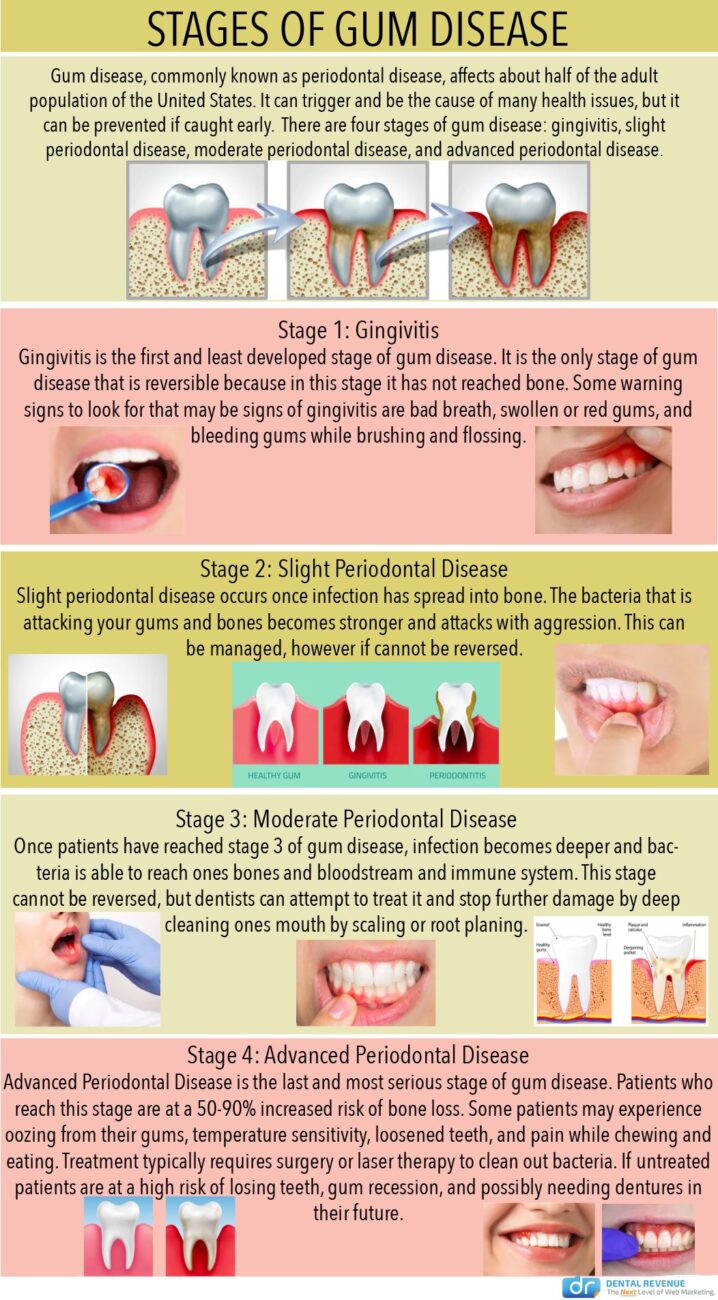Why do my gums always bleed when I floss or brush? Is this a serious dental concern, or can it be ignored?
Did you know that if your gums bleed on a recurring basis it may be an indication that you have gum disease? Gum disease is a common, and serious, dental health concern that is best treated when caught early. Bleeding gums are one of the first visual indicators that a bacterial infection is worsening.
If your gums bleed regularly when you brush or floss your teeth, contact Westside Dental Center to schedule a dental health exam. We can determine the source of your bleeding gums and treat it promptly and effectively. The sooner you begin treatment for bleeding gums and gum disease the easier it is for us to reverse the damage and effectively remove infection.
What makes my gums bleed?
Gum disease is a bacterial infection of the gums. As bacteria multiply, they spread, causing pockets to form deep in the gum line. These pockets house bacteria that causes infection and gum recession. The gums become inflamed and swell. Eventually, the gum line will begin to peel away from the teeth.
Gums become highly sensitive and the gum line may begin to recede. When a patient with gum disease brushes or flosses their teeth it irritates the already inflamed gum line, causing them to bleed. It is not normal for gums to bleed when brushing. Gum bleeding is one of the earliest and most common symptoms of gum disease. If bleeding persists contact our Our Plantation, FL, dental office and we can examine your oral health and create a treatment plan to help.
Prevent Bleeding Gums & Treatment Choices
The best way to treat gum disease is to prevent it. Gum disease is commonly caused by poor oral hygiene or a lapse in routine dental health exams. Increasing your oral care routine can prevent gum disease from ever developing.
Preventative health care is the most effective way to keep the gums and teeth clean and healthy. While twice-daily brushing and flossing are essential to keep your smile clean in between dentist office visits, biannual professional dental cleanings and oral exams are essential for healthy gums.

Dr. Dham and our entire dental care team are committed to providing patients with thorough, personalized preventative dental care. Our goal is to help all of our patients maintain their most natural, healthy and beautiful smile. We focus on routine dental cleanings, exams, and patient education to aid patients in building a stable and lasting oral foundation.
Our dental office is equipped with soft laser dentistry and digital technology for the most effective periodontal therapy treatments. Dr. Dham is a highly trained laser dentist.
Laser dentistry is a noninvasive procedure used for the treatment of gum disease. Laser dentistry reduces swelling, bleeding and minimizes patient downtime after treatment. For many patients with moderate to advanced periodontal disease, laser therapy eliminates the need for invasive gum surgery.
Bleeding Gums FAQs
Do you have more questions about bleeding gums and gum disease? Continue reading to find frequently asked questions in our office.
How long does it take to recover from gum disease?
On average, it takes between 10 and 14 days for gingivitis to clear up after treatment and with proper oral care. The further the disease progresses, the more difficult it may become to treat. Once the disease reached further stages it may take extensive treatment and we will not be able to reverse previous damage.
What are the 4 stages of gum disease?
The main stages of gum disease are gingivitis, slight periodontal disease, moderate periodontal disease, and advanced periodontal disease. As you progress through the stages it becomes more and more difficult to treat. In the last two stages gum disease is irreversible, and treatment can only prevent it from progressing further.
How long does it take gum disease to get worse?
Within five days of the first signs of gingivitis, your gums may become inflamed. The symptoms of generalized gingivitis begin to emerge within two to three weeks after the infection begins. If you don’t take care of this early, it may turn into mild periodontal disease within a month or two. Once the disease reaches the second and third stages it is much harder to treat and prior damage becomes irreversible.
When does gum disease become irreversible?
The second and third stages of gum disease are irreversible, so it’s important to take preventative measures before the disease develops. Once patients reach these stages previous damage cannot be removed. Treatment is still extremely important as it manages the disease from progressing and causing further damage. Call our office today to schedule an evaluation or consultation!
Can gum disease spread?
It is not likely, but it can happen. You or your partner can spread gum disease through kissing if both have gingivitis or poor oral hygiene. Parents are the most common source of gingivitis infection in children. When you give a baby a kiss on the lips, you’re spreading a lot more than you may think. Gingivitis and oral disease can spread easily through the transfer of saliva.
How does gum disease affect your heart?
Once periodontitis progresses into further stages the infection may reach the bloodstream. When the bacteria that cause gingivitis and periodontitis enter the bloodstream, it can cause inflammation and damage to blood vessels throughout the body. This may lead to systemic health issues including blood clots, heart attacks, and strokes. This is why it is important to begin treatment for periodontitis as soon as possible.
Request a Periodontal Health Exam Today
Visit your local Plantation, FL dentist near you at Westside Dental Center if you have bleeding gums, swollen and irritated gums, or any other negative changes in your oral health.
Westside Dental Center offers modern, comprehensive, and personalized dental care services for the treatment of gingivitis and gum disease. We are accepting new patients from communities near you in Fort Lauderdale, Coral Springs, Sunrise, and Davie.
Contact our Plantation, FL dental office at (954) 251-0640 or request an appointment online to schedule your next dental exam and periodontal consultation.
